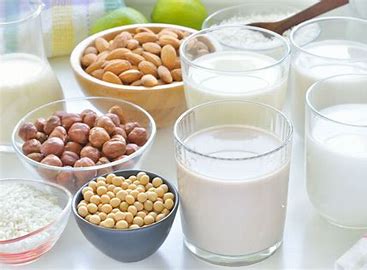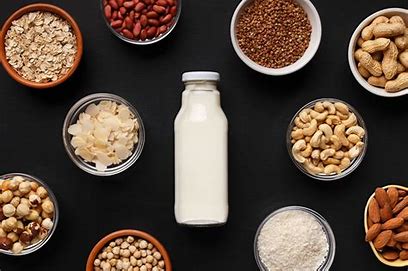For anyone who doesn’t want to drink cow’s milk there are
many alternatives available. Are these healthier than traditional milk, and
should we all be making the switch?

First it was soy, now there’s almond, cashew, hazelnut, oat,
rice and coconut. Plant-based milks are increasingly popular, with no shortage
of people promoting their supposed health benefits over regular milk.
Plenty of us don’t drink cow’s milk, and there’s no reason
why you have to, says nutrition researcher Dr Tim Crowe.
“If you don’t like milk, or if you’re intolerant to it, or
have ethical issues with it, then seeking out an alternative that some of these
plant-based milks may offer seems a logical step.”
That said, continues Dr Crowe, if you’re happy drinking
cow’s milk, then there’s really no reason to switch to a plant-based option.
Milk contains important nutrients including protein, vitamin D and A, and many
micronutrients. It also plays a significant role in bone health, being a particularly
rich source of dietary calcium.
And for anyone concerned that milk promotes inflammation in
the body, a number of review studies have shown the opposite – that diary acts
as an anti-inflammatory.
How to choose a healthy milk alternative
None of the plant-based milks naturally contain enough
calcium to rival cow’s milk, which is why many of them – but not all – are
fortified. Whatever one you choose, read the nutrition label. This will tell
you if it contains added calcium and any sweeteners. Vegans may also want a
milk that has added B12.

Soy: If you’re after the closest match nutritionally with
diary milk, then choose soy. Soy typically contains more protein than other
plant-based alternatives (and like milk it’s a complete protein, containing all
the essential amino acids), along with carbohydrates and B vitamins. Most soy
milks are fortified with calcium and contain healthy unsaturated fats and
fibre.
Almond: You may have heard that almonds contain calcium, so
it makes sense to assume almond milk is rich in calcium, doesn’t it? Not unless
it’s fortified.
A 2017 survey conducted by consumer group Choice
found almond milk contained only two to 14 per cent almonds, with water being
the predominant ingredient. Almond milk is also low in energy and protein but
as a bonus does contain heart-healthy monounsaturated fats.
Other nut milks like cashew, hazelnut and macadamia have a
similar nutrition profile, although tend to be more expensive.
Oat: Blend oats and water, strain off the liquid, and you
have oat milk. Low in fat but also low in protein, oat milk is naturally sweet,
contains fibre (including the cholesterol lowering beta-glucan), vitamin E,
folate and riboflavin.
Coconut: There’s little advantage to choosing this, as it’s
low in protein and carbs, and high in saturated fats.
Rice: Produced from milled rice and water, rice milk is
naturally high in carbs and sugars, but low in protein and calcium, unless
fortified.
Are any plant milks good for children?
If you want to give your children plant-based milks, it’s a
good idea to discuss the best options with a dietitian first as many may not be
suitable.
Of all the plant milks, soy milk comes out on top for
children as it provides similar nutritional benefits to diary milk. Protein is
an important part of a child’s diet, essential for normal growth and
development, and soy provides a similar amount of protein to diary milk.
For children, look for a soy milk that is full fat and
fortified with calcium, ideally at least 100mg per 100ml.
Rice milk is the plant milk least likely to trigger an
allergy but it is still not a suitable milk substitute for children because of
its low protein content.